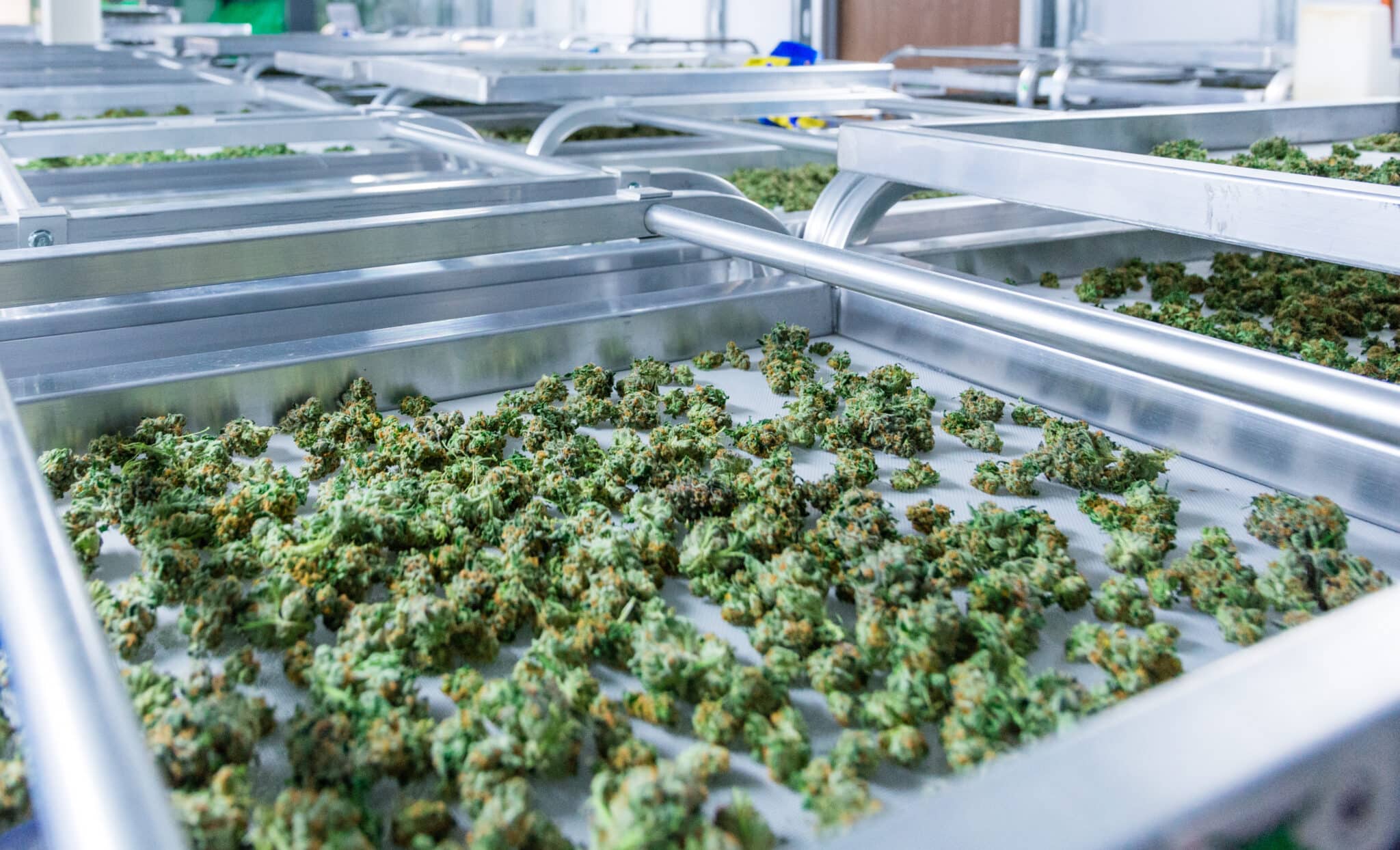What is PGR Weed?
PGR, or plant growth regulator, cannabis is a type of cannabis cultivated using specific growth regulators. These regulators play a crucial role in managing the plant’s development, including aspects like the timing of fruit ripening and the dimensions and form of the plant’s roots, leaves, and stems.
In relation to cannabis, PGRs serve to enlarge the buds, thereby increasing their weight and density. This, in turn, allows for an inflated selling price, often misleading unsuspecting buyers. While these growth regulators may prove advantageous to dishonest cultivators, the potential health implications for the consumers of this PGR cannabis are concerning. There have been established connections between negative health outcomes and the use of PGRs.
The best way to avoid PGR cannabis is to only use marijuana from a legal, trusted source. If you are looking for medical marijuana in Florida, give us a call and we can set up an appointment.
Commonly Used Synthetic PGRs in Cannabis
Synthetic plant growth regulators, while potentially harmful to humans, can also impact the quality of the plants they’re used on. In the world of cannabis cultivation, the most frequently utilized PGRs include:
- Paclobutrazol
- Daminozide, also known as Alar
- Chlormequat Chloride
These are the three most widespread synthetic PGRs used in this industry. Each of the mentioned PGRs work in different ways to impact the growth of the plants they are used on. Unfortunately, all are proven to be detrimental to human health – and even recognized as a carcinogen by the EPA.
How to Identify PGR Weed?
The primary distinction between PGR cannabis and organic cannabis lies in the cultivation process; PGR cannabis is nurtured with artificial hormones, whereas organic cannabis is not. The use of plant growth regulators in PGR cannabis also results in unique physical attributes. Here are some indicators that differentiate PGR cannabis from its natural counterpart:
- Buds of PGR cannabis are typically firmer, more compact, and weightier.
- There is a lower concentration of crystals on the leaves of PGR cannabis compared to organic cannabis.
- PGR cannabis might exhibit a moist or springy texture, in contrast to the drier feel of natural cannabis.
You can also differentiate PGR cannabis from organic cannabis by breaking up the bud. Organic cannabis is typically rich in terpenes and flavonoids, giving it a distinct aroma, while PGR cannabis tends to have a faint scent. Additionally, the taste of PGR cannabis often lacks the depth and complexity found in naturally grown marijuana, often characterized by a sharp, chemically-infused flavor.
The consumption experience of PGR cannabis also varies from its organic counterpart due to its lower THC content and the presence of PGR chemicals. These substances might induce a swift intoxication followed by a ‘crash’ phase, where you might feel sluggish and heavy-headed.
PGR Weed vs Organic Weed Growth Regulators
There exist various safe substitutes for artificial PGRs. For instance, Kelp possesses innate plant hormones that can aid in boosting your yield. Additionally, triacontanol, synthesized from alfalfa hay, represents two other organic regulators of plant growth.
Much like their artificial counterparts, these organic regulators enhance the growth patterns of weed plants, leading to denser buds. They present no harm to human health. They are eco-friendly, implying that their residual seepage into the soil or water bodies does not adversely affect biodiversity.
The most common organic plant growth stimulants for producing PGR weed are kelp, chitosan, and triacontanol. Organic PGRs aren’t as effective for those operating in the gray and black markets, as they are pricier and do not produce large, tight, heavy, vibrant, and profit-yielding buds. In contrast, synthetic plant hormones create almost worthless buds that are dangerous due to their lack of recreational or medicinal cannabinoids.
Risks of Consuming PGR Cannabis
As of late, concerns have been raised about the potential adverse health effects related to consuming PGR cannabis. One of the most alarming risks associated with PGR cannabis is an increased likelihood of developing cancer. It’s important to note that these carcinogenic properties are linked to synthetic PGRs, and not those that naturally occur or are used in the growing process.
In addition to the risk of cancer, synthetic PGRs have also been associated with other health hazards such as:
- Irritation of the skin and eyes
- Damage to organs, especially when consumed in large quantities
- Negative impacts on fertility
While further research is required to fully understand the potential health risks of synthetic PGRs, it is always advisable to be cautious. Ensure you know the source of your cannabis and only purchase from trusted growers who adhere to sustainable and safe practices.
Using cannabis safely and responsibly is crucial, particularly for medical marijuana users. Consider obtaining a medical marijuana card through one of many Cannabis Doctor X – Medical Marijuana Doctor locations. This will allow you to consult with qualified medical professionals and begin your application process, ensuring you’re well-informed about your options and the potential risks.
Frequently Asked Questions About PGR Cannabis
Is PGR weed illegal?
In 1999, PGRs were outlawed in the food industry due to their potential carcinogenic effects. Nutritional scientists have concluded that PGRs pose a risk to human health and subsequently prohibited their use in food crops. Despite this, the use of PGRs as fertilizers for decorative plants has not been restricted.
Is the use of PGRs becoming more frequent?
The cannabis industry is witnessing a surge in competition as numerous entrepreneurs and corporations vie for a share of the market. The primary focus has shifted towards enhancing production rates, with many growers seeking to cultivate more plants at a faster pace. Utilizing PGRs has emerged as a method to achieve this goal.
Consequently, the usage of PGRs is on the rise. From modest farms to large-scale corporate cultivators, entities are viewing PGRs as a means to augment their profits through increased plant yield. As the adoption of PGRs continues to expand within the sector, it may become increasingly challenging to locate products that have not been treated with these growth regulators.
Have Questions? Reach Out to Us Today
If you have any questions regarding PGR cannabis or any other topic, we can help at Cannabis Doctor X – Medical Marijuana Doctor. We are recognized for superior service and competitive pricing on evaluations for medical cannabis cards, card renewals, and patient transfers in Florida. Committed to a genuine approach to health and personal wellness, Cannabis Doctor X – Medical Marijuana Doctor welcomes you to book an appointment or reach out for more information about their medical marijuana services in Florida.



